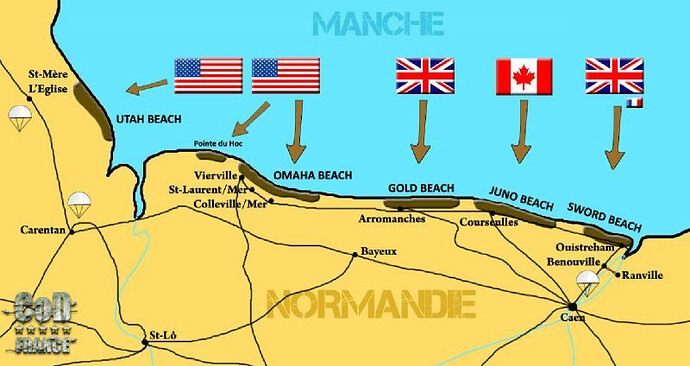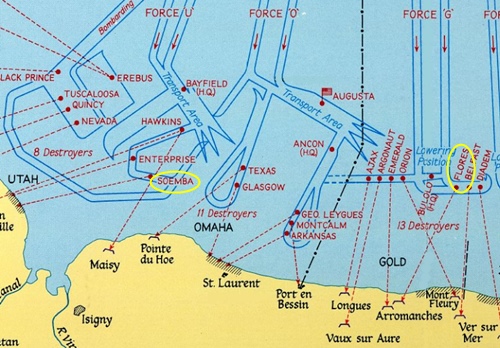Ermmm…
The bombing of Omaha was a study in failure to listen to good advice from those who knew.
And blame for this rests entirely with none other than General Omar “Soldier’s soldier” Bradley.
MR Bradley totally ignored the Pacific advisors sent to COSSAC planners, Gen. Pete Corbin. Bradley told him, without qualifications, that Corbin was preaching “Bush league stuff”.
I’ll drag the MHQ article out on this if anyone is particularly interested. corbin’s advice was ignored. Brdley felt that in the “Big Leaugue”, his professional advice was not welcome.
significantly, Omaha was the only beach wehere the issue was in any way “in doubt”. The airstrike killed more Norman cows than German troops of the 352nd infantry division. they had, by 1100 hrs on D-Day, the situation so well in hand in their view, that reserves went to British beaches instead.
If anything, cratering Omaha beach may well have been useful; at the very least it would have given attacking waves somewhere to shelter. As it was, the bombardment failed in every way possible, the surf was too heavy to use the only British amphibious toys that Bradley also arrogantly waived aside, and nearly every one of the DD tanks that set forth to land sank.
Listening to Pete Corbin’s realistic objections about lack of numbers in bombarding ships, their target selection, and the role of the Air force in the pre-invasion bombardment, cost a lot of lives, saved only by German reserves stupidly sent elsewhere, when Omaha could, concievably, have been trounced at the waterline.
Corbin had noted well that the Marine corps version of support from fighter bombers and medium attack planes usually did very little in the way of it’s stated tasks in the Pacific. noting this to Bradley, Bradley swept such considerations aside as well.
all in all, it was an arrogant performance from a General whose name even his serving soldiers were mostly unaware of. On the other hand, Third Army units knew exactly who their Army commander was right through the conflict, from their initial role as the ‘bait’ (then designated as FUSAG…Frst US Army Group), to their transfer to normandy and activation as the Third Army, for the breakout into open country during Operation “Cobra”.
Omar Bradley had the wonderful distinction of having his chief rival, Patton, die in a vehicle collision whilst still in Germany.
no-one was ‘mouthy’ enough after the war to check ?Bradley’s claims of having won the ground war virtually on his own, with hodges, Patton, Dempsey, montgomery, Crerar and others as mere 'supporting elements".


